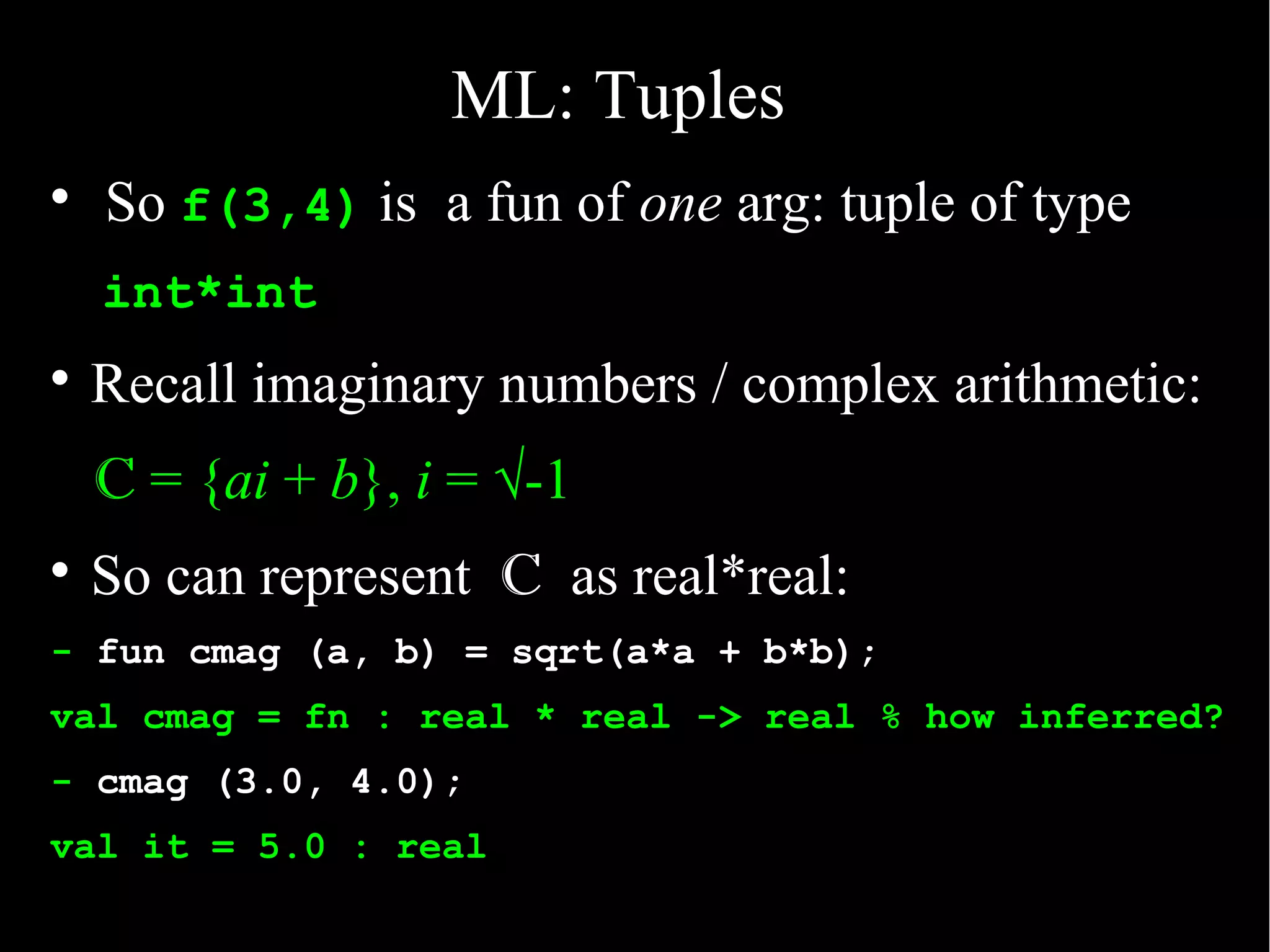This document discusses the strongly typed, functional programming language ML. It provides examples of ML's type system including strong static typing of values and functions, type inference, pattern matching, and built-in list and tuple data types. Functions can operate on lists and tuples, and the type system ensures values are used correctly based on their inferred types.
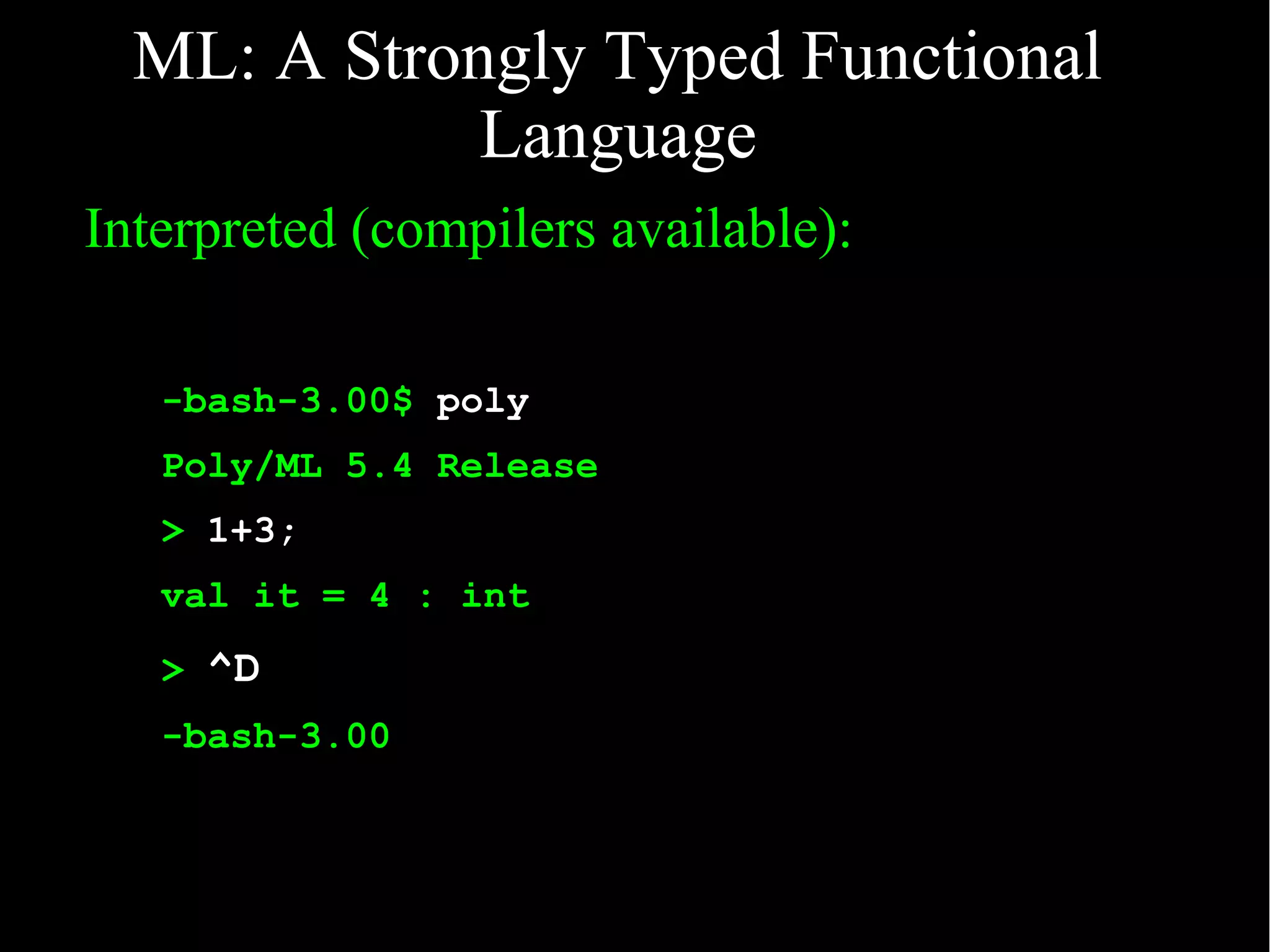
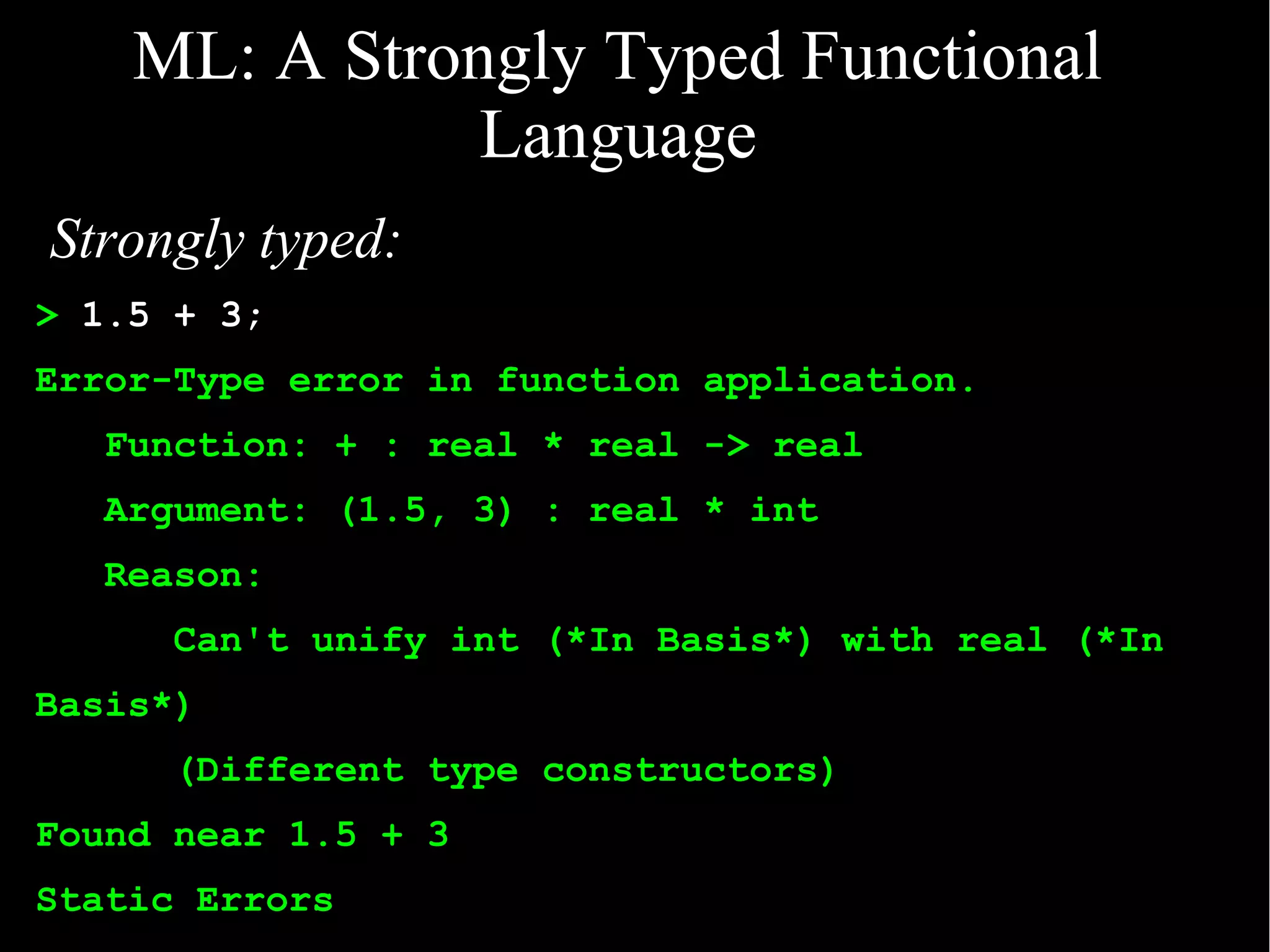
![ML: A Strongly Typed Functional
Language
Functional:
> fun square(x:int) = x*x;
val square = fn : int -> int
> map square [1,2,3];
val it = [1,4,9] : int list](https://image.slidesharecdn.com/mlintro-121010212303-phpapp01/75/ML-A-Strongly-Typed-Functional-Language-3-2048.jpg)
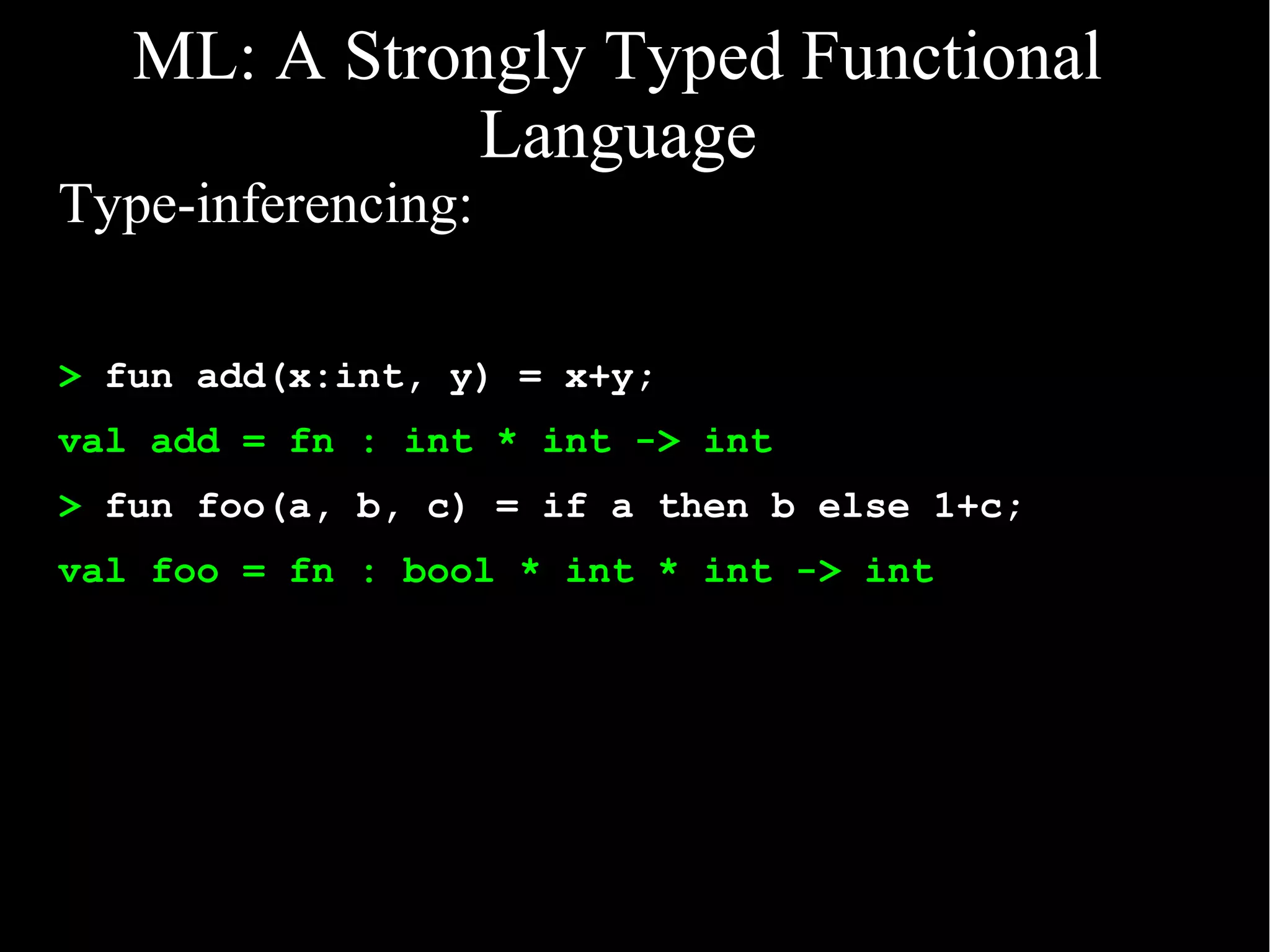
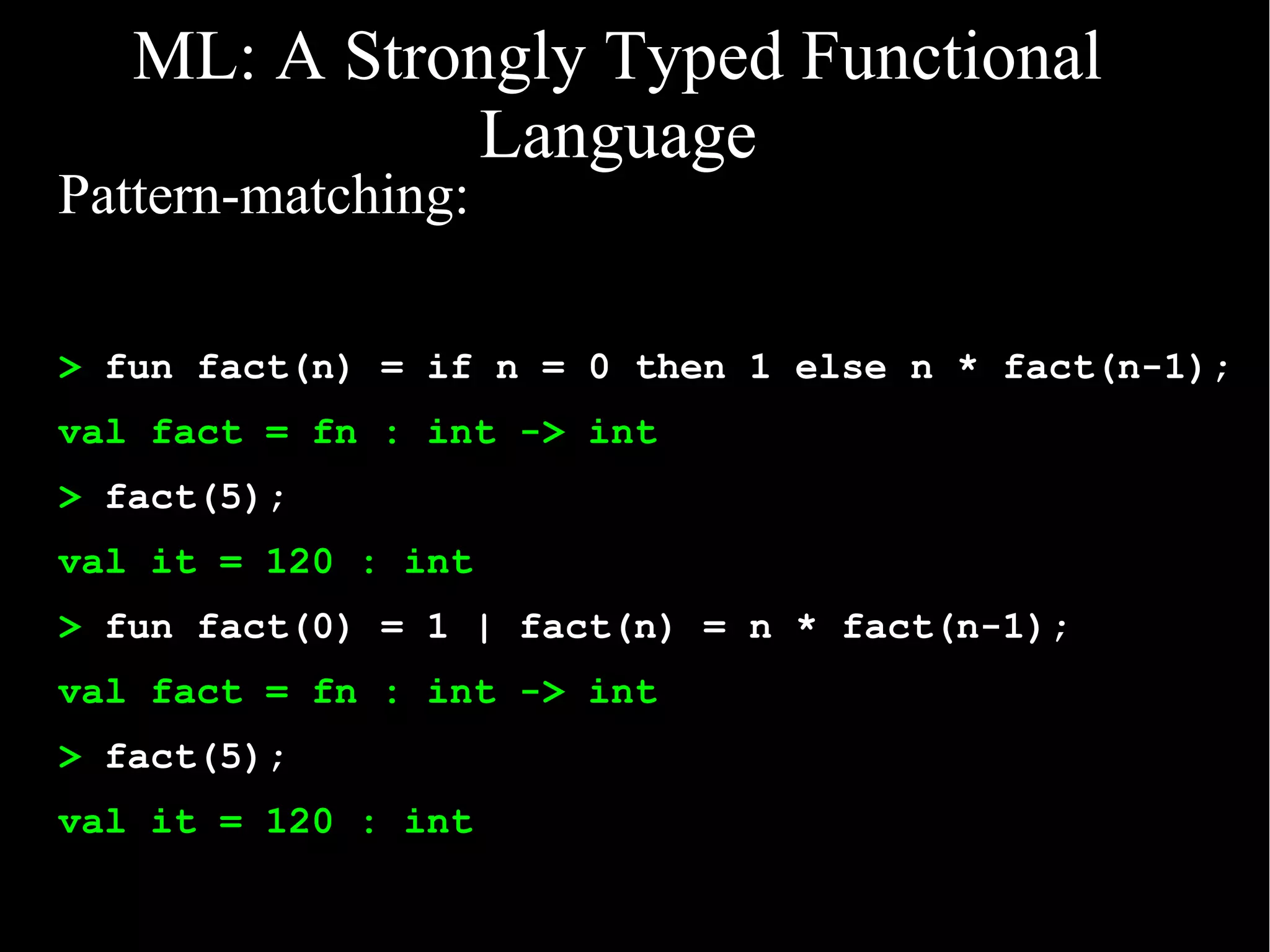
![ML: Lists
> val a =[1,3,5,7,9];
val a = [1,3,5,7,9] : int list
> hd(a);
val it = 1 : int
> tl(a);
val it = [3,5,7,9] : int list
> a @ [11];
val it = [1,3,5,7,9,11] : int list](https://image.slidesharecdn.com/mlintro-121010212303-phpapp01/75/ML-A-Strongly-Typed-Functional-Language-6-2048.jpg)
![ML: Lists
> fun rev(ls) = if null(ls) then nil
else rev(tl(ls)) @ [hd(ls)];
val rev = fn : 'a list -> 'a list
> rev([1,3,5,7,9]);
val it = [9,7,5,3,1] : int list
>
> fun rev(nil) = nil | rev(x::t) = rev(t) @ [x];
val rev = fn : 'a list -> 'a list
> rev([1,3,5,7,9]);
val it = [9,7,5,3,1] : int list](https://image.slidesharecdn.com/mlintro-121010212303-phpapp01/75/ML-A-Strongly-Typed-Functional-Language-7-2048.jpg)
![ML: Tuples
(single, double, triple, quadruple, quintuple,
sextuple, heptuple, octuple, ..., -tuple):
> [1,2,3];
val it = [1,2,3] : int list
> (1,2,3);
val it = (1,2,3) : int * int * int
> [1,2,3.5];
Error-Elements in a list have different types.
> (1,2,3.5);
val it = (1,2,3.5) : int * int * real](https://image.slidesharecdn.com/mlintro-121010212303-phpapp01/75/ML-A-Strongly-Typed-Functional-Language-8-2048.jpg)
